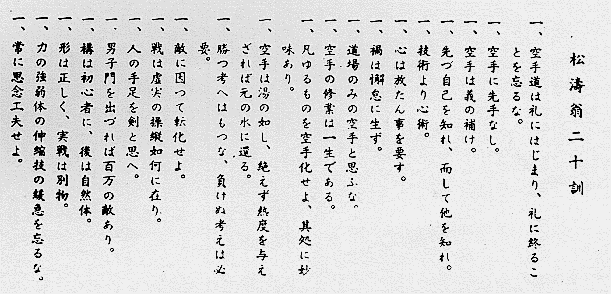Calamity springs from carelessness
禍は懈怠に生ず

This is the seventh in a series of posts to examine Shotokan’s niju kun, Gichin Funakoshi’s list of 20 guiding principles for karate.

The seventh principle is:
禍は懈怠に生ず
In Romaji:
Wazawai wa ketai ni shōzu.
As for English translations, I’ve seen all of the following:
- “Carelessness leads to disaster”
- “Misfortune comes out of idleness”
- “Accidents arise from negligence”
- “Accidents come from laziness.”
But my favorite English translation is:
Calamity springs from carelessness.
All of these mean pretty much the same thing, so I’m not inclined to nitpick the translations, but that last one seems more elegant and less like Red yelling at the kids in the basement.

And it’s precisely because this does sound like your parents yelling at you that you probably don’t need any help to understand it.
- Don’t take your eyes off the bad guy.
- Don’t drop your guard.
- Don’t block kicks with your hands open.
etc.
Genwa Nakasone’s interpretation gives several examples of how one might be careless in everyday life, and how that might lead to unfortunate consequences, all of which seem perfectly obvious. This one means exactly what it says: Being careless leads to bad results.
But isn’t it a bit odd that it stops there? I mean, sure, the contrapositive is implied.
$$A \to B = \neg B \to \neg A$$
If you want to avoid bad results, then you should avoid carelessness, but was it significant that Funakoshi left that unsaid?
I don’t really think so, but it does provide a good opportunity to talk about another truism of teaching. You can teach something very, very well, but the student has to meet you halfway with a willingness and ability to learn.

Thus, while “Calamity springs from carelessness” is both wise and poetic, it falls to the listener to understand the real message: Don’t be an idiot.